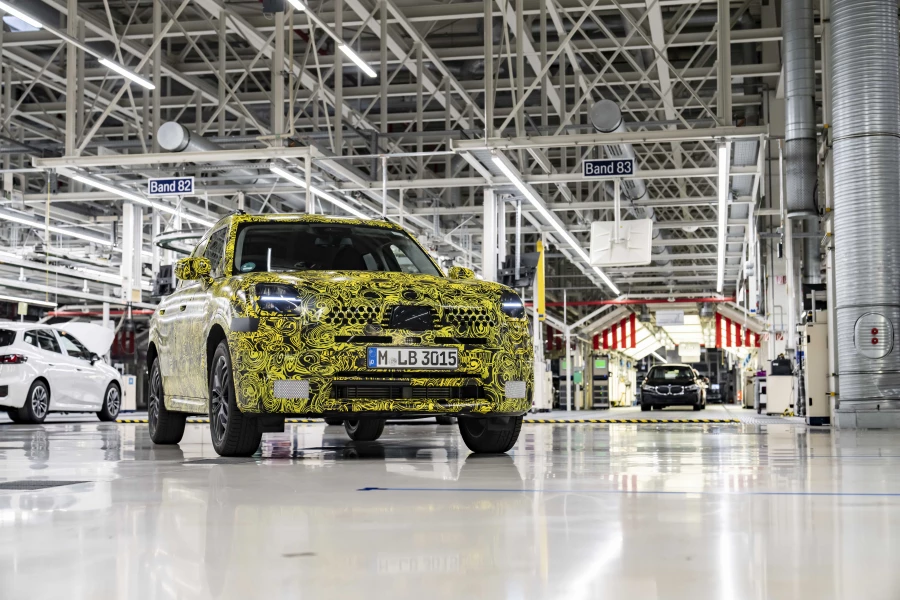At the end of this year, the electric Mini Countryman is scheduled to roll off the production line at the BMW plant in Leipzig. According to the car manufacturer, preparations there are in full swing. The production of components is also being expanded at the plant.
A total of eight production lines for the manufacture of EV components are to be added by the beginning of 2024. BMW says it is investing more than 800 million euros in this. More than 1,000 employees are to work in e-component production after the start.
These electric vehicle components will then also be built into the all-electric Mini Countryman, which is to be built in parallel to its combustion counterparts in Leipzig from the end of the year. The Mini crossover will roll off the production line together with the BMW 1 Series, 2 Series Gran Coupé and 2 Series Active Tourer. A permanent workforce of 5,600 employees will produce around 1,000 vehicles a day.
Leipzig is also to become a ‘green plant’. Some of the energy required is already produced by four wind turbines on the site. BMW also relies on hydrogen there. “Our Leipzig vision is the complete decarbonization of production by replacing fossil fuels with hydrogen,” says plant manager Petra Peterhänsel. ” At the BMW Group plant in Leipzig, we are the first automotive plant in the world to use a newly developed burner technology in our paint shop that can use green hydrogen instead of natural gas.”
Among the production lines are two new high-voltage battery assembly lines, which will then be used in the electric variant of the Mini Countryman, among others. Up to now, the production of electric vehicle components in Leipzig involved module assembly, while the ready-to-install battery packs have all come from Dingolfing. This will change with the commissioning of the high-voltage battery assembly lines in Leipzig.
At the end of February, BMW announced the purchase of a site for battery assembly in Bavaria. For the BMW vehicle plants in Bavaria, battery assembly will not take place in smaller facilities in the vehicle plants themselves, but centrally in a large assembly plant. Construction is scheduled to start in 2024. There, round cells for electric BMWs of the New Class will probably be assembled into packs – so the Mini Countryman is not affected.
It only recently became clear that BMW could also convert its Mini plant in Oxford to produce an electric Mini. According to British media, there have been talks with the British government about a financing package of up to 75 million pounds (a good 84 million euros).





















